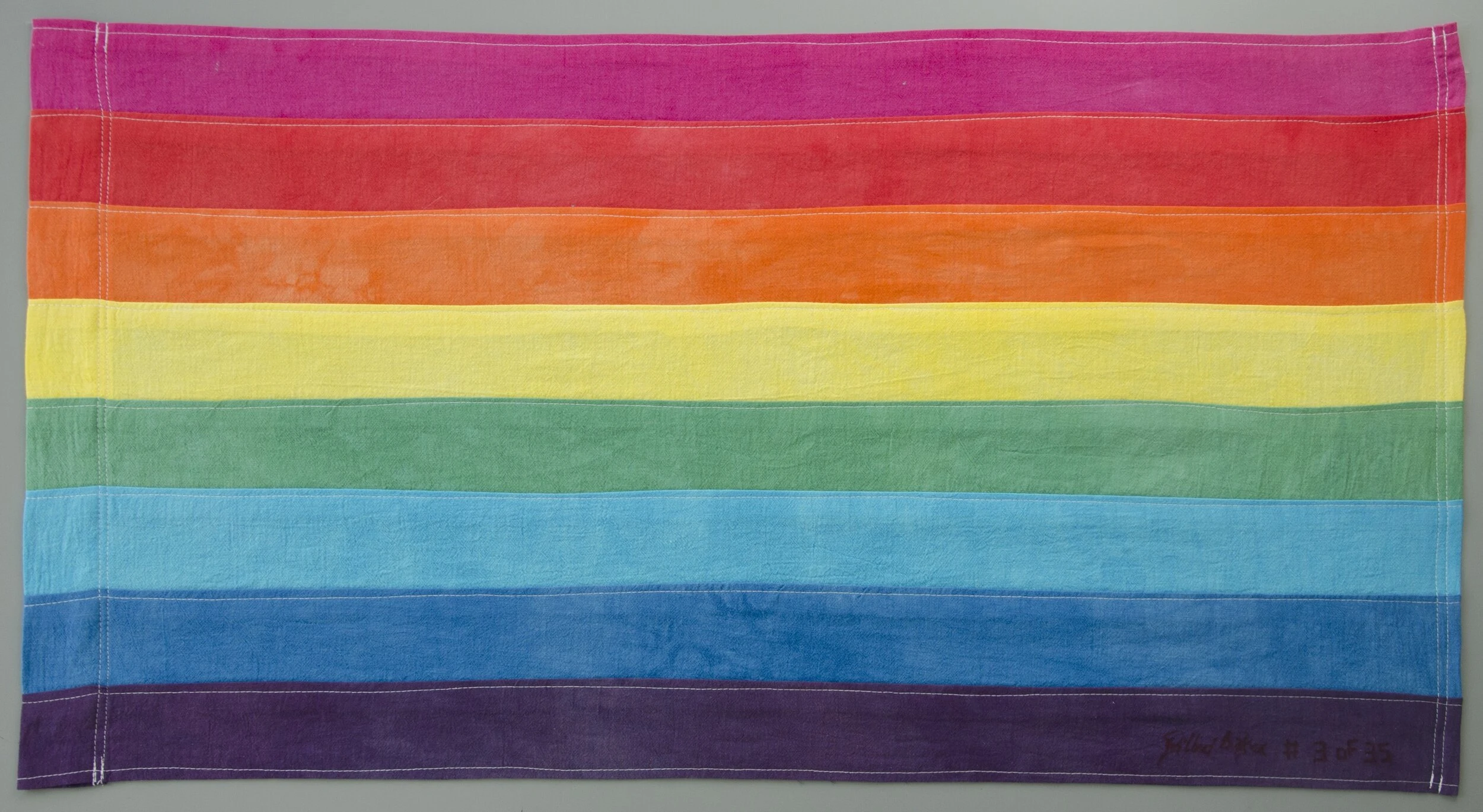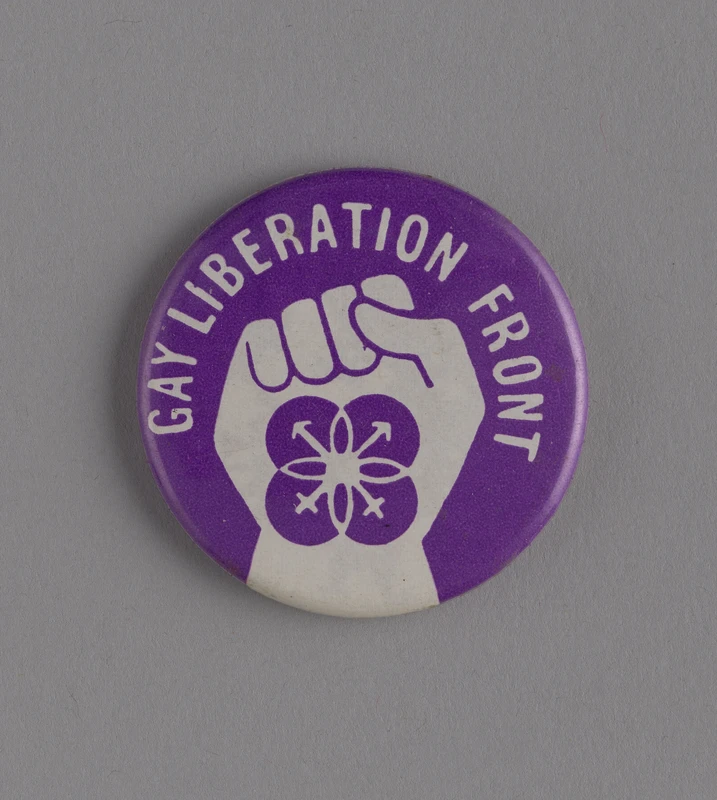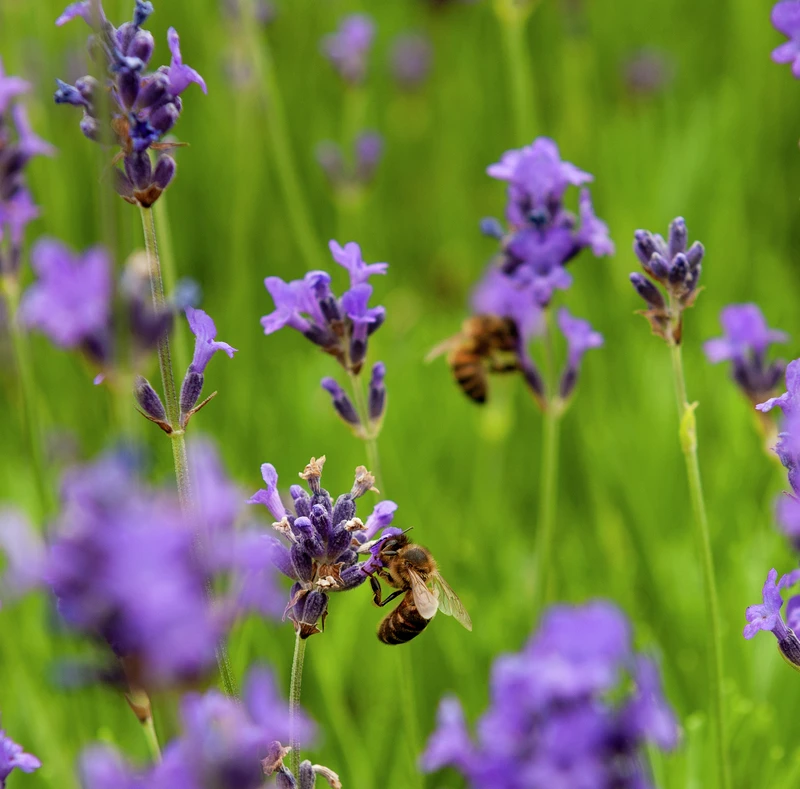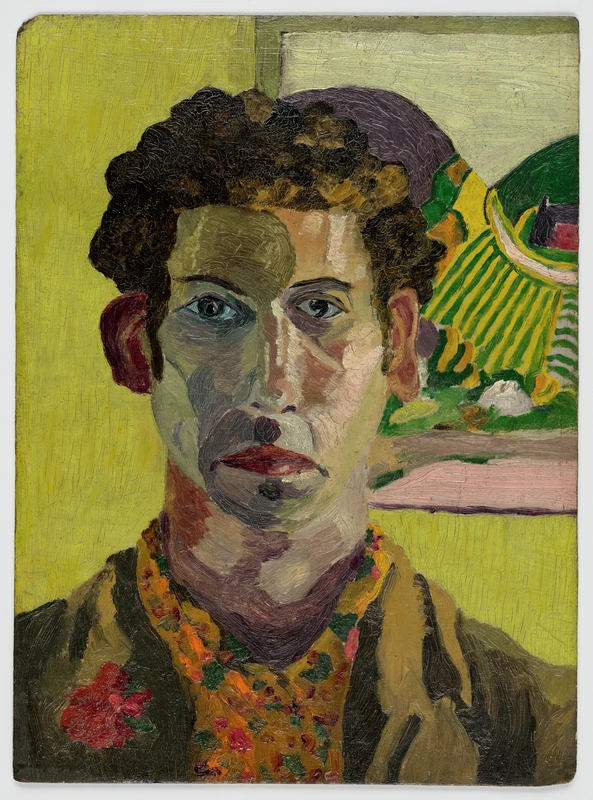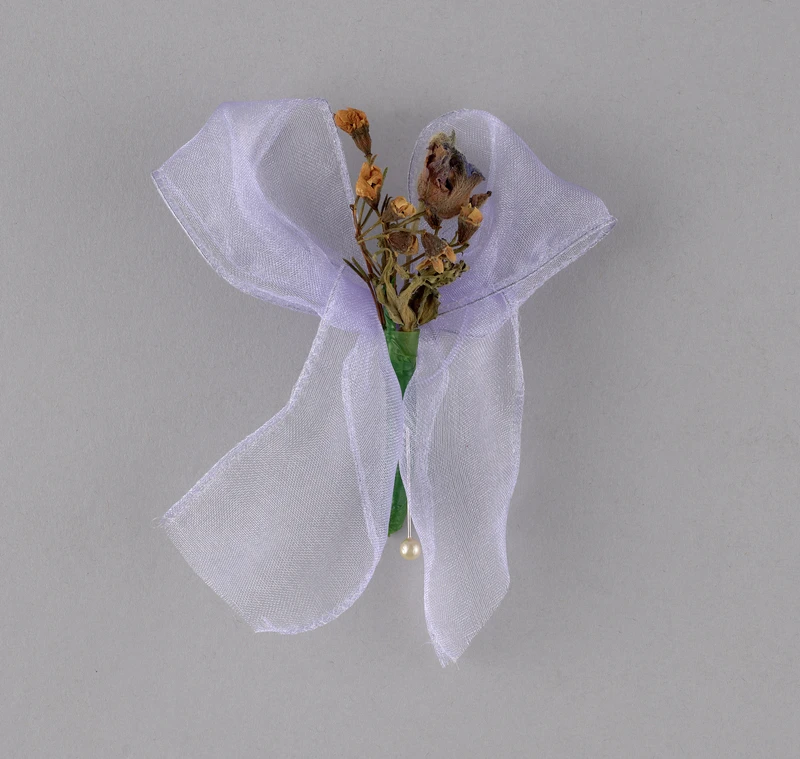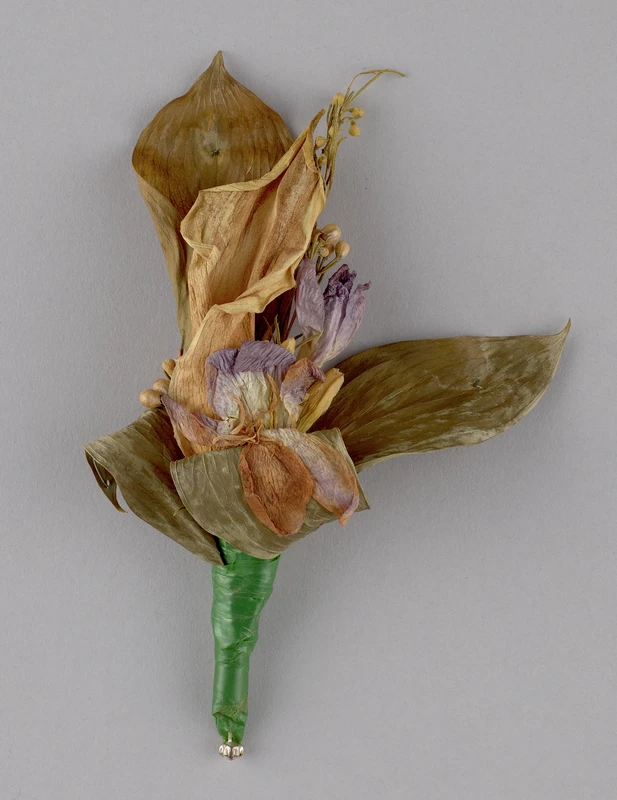Celebrating Pride Month! - Wearing my badge with Pride
, 27 June 2025
To celebrate Pride Month this year, some of our amazing ACPs will be hosting Pride themed workshops across some of our museums this June. As part of that celebration, we asked them to reflect on the themes and inspiration behind their workshop and what Pride means to them.
Pride means solidarity and intersectionality - always has and always will!
“You have worn our badge ‘Coal Not Dole’ and you know what harassment means, as we do. Now we will support you. It won’t change overnight, but now a hundred and forty thousand miners know … about black [communities] and gays and nuclear disarmament and we will never be the same.”
I was inspired to run several queer, intersectional badge-making workshops for Bloedd because of the legacy of LGSM. Lesbians and Gay men Support the Miners were a group who raised money for, and stood with, the 1984-1985 Miners Strike. They built connections with mining communities in South Wales, including Neath, Dulais and Swansea, as well as raising money for women’s support groups. A pin badge from this group is immortalised in the Amgueddfa Cymru collection. The badge was designed by LGSM member and activist Jonathan Blake.
LGSM is an incredible example of intersectional activism and queer solidarity. As the quote from David Donovan demonstrates, this movement was about groups supporting each other and uniting against systems of oppression and alienation. LGSM were passionate about class solidarity, and drew parallels between how the miners and LGBT+ communities were treated by the media (e.g. the vilification of the National Union of Mineworkers and the disinformation spread about the HIV/AIDS pandemic). Both groups also experienced police violence and political scapegoating.
LGSM was also an important community for people diagnosed with HIV AIDS, like Jonathan Blake who was one of the first people diagnosed with HIV in the UK. HIV was widely misunderstood and stigmatised at the time, so LGSM providing a safe space for members with HIV would have been both radical and life-changing.
LGSM raised thousands of pounds to support the striking miners, putting on theatre performances and their famous ‘Pits and Perverts’ ball to raise funds for miners and their families. In turn, many miners came to march at Pride, and later in the year the NUM pushed for LGBT rights to be included in both TUC (Trades Union Congress) and Labour Party policies. This is such a perfect example of the important role that intersectional activism and class solidarity can play in society.
This is a message that we need now more than ever. This year alone we have witnessed the rolling-back of LGBT+ rights, the demonisation and scapegoating of trans communities, and the rise of right wing parties. We have seen global genocides, political atrocities, and the violation of human rights. We have also seen political tactics and media narratives that are meant to overwhelm and divide us. And we, as communities, have been hurt by these narratives and hurt by the systems that are taking away our rights, our benefits, our welfare.
And so this Pride Month we need to unite and stand together. We need to embody the spirit of LGSM and come together to support each other. We are living in hard times -- we are living in a cost of living crisis -- and instead of being divided, we should be helping each other out with food drives and potlucks and fundraising events and protests and action. Community and love and solidarity. This is what Pride is about.
These are the themes I hope to embody in my workshop. As a queer and disabled activist, I am a strong believer in intersectional activism. I think badges are brilliant ways to implement micro-activism and micro-resistance. Badges have been used in DIY and punk movements for years, and have long been used as a creative way to express queer identity and pride. For me, the LGSM badge in the museum’s collection is more than just an accessory. It symbolises a movement of hope and solidarity. By creating our own badges we get the chance to express ourselves and the causes we care for.
Kaja Brown @kaja_amy_brown on Instagram
Amgueddfa Cymru Producers [ACPs] are a group of young people aged 16 – 25 living in or from Wales who collaborate with the Museum through participatory and paid opportunities.
This is a space to deepen knowledge and to ensure that cultural and heritage spaces are more representational of the young people and their many cultures that make up Wales today. We are here to make heritage relevant!
We explore art, heritage and identity, environmentalism, natural science, social history and archaeology through our collections and by co-producing events, workshops, exhibitions, digital media, publications, development groups and more! Our ACPs work closely with departments across the Museum to help us deepen representation within our collections and programming, that reflects all communities in Wales. This includes expanding our LGBTQ+ collection, decolonising our collections and gathering working-class history through oral histories. ACPs can also bring their own ideas or topics they wish to explore through our collections!
You can sign up to our mailing list here to keep up to date with news and new opportunities.
If you have any queries you can email us on bloedd.ac@museumwales.ac.uk. Follow us on Instagram to keep updated on all things Bloedd!
